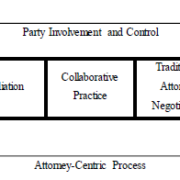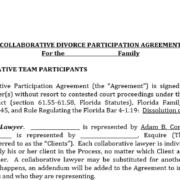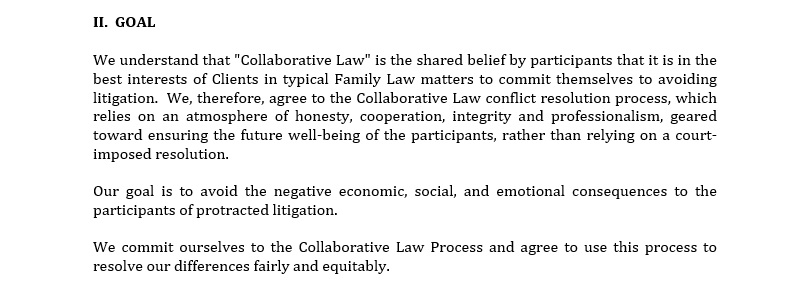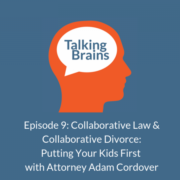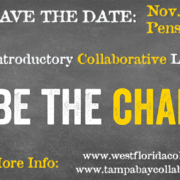Typical Steps in a Collaborative Divorce
Divorce is tough. Your marriage is falling apart and the foundation upon which you thought you could depend is no longer there. Rather than fling yourself into the chaotic and adversarial divorce court system, you have alternatives. One structured alternative is Collaborative Divorce.
In Collaborative Divorce, you and your spouse retain separate attorneys to guide you along the way. Unlike litigation lawyers, these attorneys’ only purpose is to help you reach an agreement as amicably and efficiently as possible. In fact, the process prohibits Collaborative Attorneys from engaging in contested court proceedings. Because of this, you do not have to worry about motion practice, depositions, or dirty trial tactics. You can just focus on reaching a resolution that is best for your future.
Here in Tampa Bay, a neutral Collaborative Facilitator usually aids you. The Facilitator has a specialty in communications, family dynamics, and childhood development. When you and your spouse seem to get stuck in the arguments of the past, the Facilitator will help get things back on track and focused on the future. Further, if you have children, the Facilitator will help you craft a parenting plan tailored to your children’s specific needs.
To ensure transparency, you may retain a neutral Financial Professional. The Financial Professional helps you and/or your spouse understand the extent of your estate. He or she will then help you develop options for best dividing it. He or she can also help you develop budgets so you know that you will have a financially sustainable future after divorce.
Every Collaborative Divorce is Different
Every Collaborative Divorce is different. However, as a trainer, many of my students (who are lawyers, financial professionals, mental health professionals, mediators, and others) find it helpful to have a step-by-step guide to Collaborative Divorce. This is meant only as a sample. The more Collaborative Cases I am involved with, the more they deviate from this guide; in truth, just as there is no “typical” family, there is no “typical” Collaborative Divorce.


